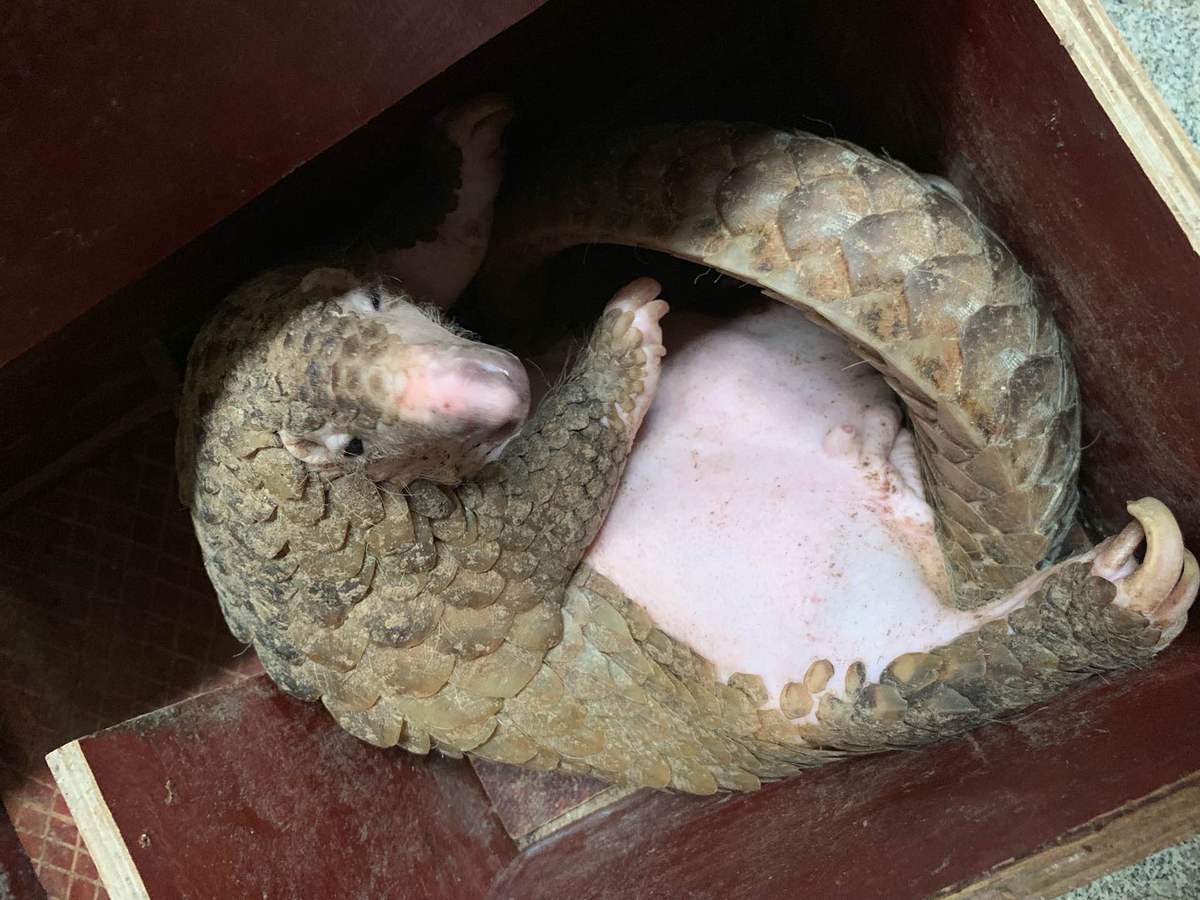Research findings may clear pangolins of blame in transmission of SARS-CoV-2 to humans

Pangolins may not be the intermediate host of COVID-19, according to new study just released.
The scaly anteaters are natural hosts of coronaviruses but are not likely the direct source of the recent outbreak in humans, the peer-reviewed study 'Are pangolins the intermediate host of the 2019 novel coronavirus (SARS-CoV-2)?' found.
Published on May 14 in the scientific journal PLOS Pathogens, the study was led by Dr Chen Jinping of the Guangdong Institute of Applied Biological Resources.
Researchers noted the "large-scale surveillance of coronaviruses in pangolins could improve the understanding of the spectrum of coronaviruses circulating in the wild and could help prevent and control emerging infectious diseases".
Some of the recent studies have shown that severe acute respiratory syndrome coronavirus 2 (SARS-CoV-2) – the virus that causes COVID-19 – could have originated in bats. But SARS-CoV-2 may have spilled over to humans from another intermediate host, the source of which is still unknown.
"To effectively control the disease and prevent new spillovers, it is critical to identify the animal origin of this newly emerging coronavirus," the study found.
Chen and his colleagues examined whether pangolins could be an intermediate host for SARS-CoV-2. The researchers assembled the whole genome of a coronavirus identified in two groups of sick Malayan pangolins.
Their results suggested the pangolin coronavirus is genetically similar to SARS-CoV-2 and a group of bat coronaviruses, but further analysis found SARS-CoV-2 did not arise directly from the pangolin coronavirus.
Although this study does not support the idea that pangolins are an intermediate host directly responsible for the emergence of SARS-CoV-2, it is possible that other coronaviruses could be circulating in pangolins.
Wildlife conservation and limited exposure to wildlife "will be important to minimize the risk that coronaviruses will spill over from wild animals to humans", the authors of the study said.
"Pangolins could be natural hosts of betacoronaviruses with an unknown potential to infect humans. However, our study does not support that SARS-CoV-2 evolved directly from the pangolin-CoV."
Another paper, published on March 26 in the scientific journal Nature, said coronaviruses closely related to SARS-CoV-2 were detected in a small number of pangolins that were smuggled into China.
"The degree of similarity is not sufficient to suggest that pangolins are the intermediate hosts that are directly involved in the current SARS-CoV-2 outbreak," the paper said.
"However, the findings suggest that pangolins are a second mammalian host of coronaviruses and that their sale in wildlife markets should be strictly prohibited to minimize the risk of future virus transmission to humans."
Last December, an outbreak of the coronavirus disease COVID-19 emerged in Wuhan, in Central China's Hubei province.
Although evidence suggests that bats may be the likely reservoir for SARS-CoV-2, the identity of intermediate host animals that could have facilitated the transfer of this virus into humans remains unknown. One possible host is pangolins which are among targets of illicit trade.
Yi Guan from the University of Hong Kong, and colleagues from Hong Kong and the Chinese mainland, analyzed samples taken from 18 Malayan pangolins that were obtained from anti-smuggling operations in southern China between August 2017 and January 2018.
They detected SARS-CoV-2-related coronaviruses in five of the animals. They further detected similar coronaviruses in three out of 12 additional animals seized in a second province in 2018 and in an additional animal from a third province from which a sample was collected in 2019.
"All of the pangolin coronaviruses identified to date, however, lack a specific alteration in their sequences that is seen in human SARS-CoV-2, which places uncertainty on their role in the transmission of the novel coronavirus into humans," the paper said.
Pangolins are the only mammals other than bats reported to date that have been found to be infected with a SARS-CoV-2-related coronavirus.
These findings highlight a potentially important role for pangolins in the ecology of coronaviruses, but do not directly implicate pangolins in the transmission of SARS-CoV-2 to humans.
The authors propose that handling these animals requires caution and suggest that further monitoring of pangolins is needed to understand their role in the emergence of coronaviruses with the potential to infect humans.
Please feel free to contact us by sending your questions to question@chinadaily.com.cn or commenting on China Daily app. We will ask experts to answer them.














